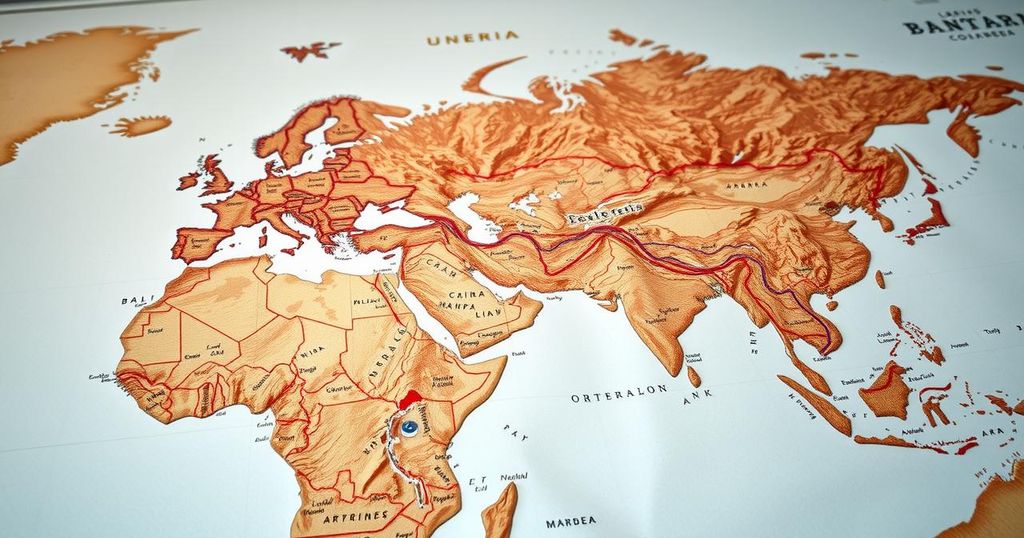Arab nations, including Egypt and Jordan, have rejected President Trump’s suggestion to relocate Palestinians from Gaza to their territories, emphasizing the importance of Palestinian rights and regional stability. They called for international support in reconstructing Gaza and reaffirmed commitment to a two-state solution as a pathway to peace.
Arab countries have collectively rebuffed President Donald Trump’s proposal to relocate Palestinians from Gaza to neighboring nations such as Egypt and Jordan. This rejection came through a statement from multiple nations, including Egypt, Jordan, Saudi Arabia, the UAE, Qatar, the Palestinian Authority, and the Arab League, emphasizing their opposition to any attempts at displacing Palestinians from their territories.
During a recent conversation, President Trump expressed his desire for Jordan and Egypt to accommodate the displaced population from Gaza, asserting that such a relocation could effectively “clean out” the area. He described Gaza as a “demolition site” due to extensive destruction resulting from the conflict with Hamas, which had persisted for 15 months, interrupted only by a fragile ceasefire.
In response to Trump’s remarks, various nations, including Egypt, Hamas, and Jordan, along with European states, promptly rejected the idea. Following a significant diplomatic meeting in Cairo, representatives released a statement underscoring the potential destabilizing impact of relocating Palestinians, urging a commitment to a two-state solution that allows residents to remain on their land.
The statement articulated concerns regarding the implications of relocating Palestinians, highlighting fears that Israel would prevent their return, exacerbating regional instability. Egypt and Jordan are particularly apprehensive about the economic and political ramifications of admitting large numbers of displaced individuals into their territories.
Both countries, which maintain peace agreements with Israel, overwhelmingly support the establishment of a Palestinian state encompassing the West Bank, Gaza, and East Jerusalem, regions occupied since the 1967 conflict.
The tensions surrounding the Palestinian situation have escalated, particularly following President Trump’s suggestions regarding their relocation. Current geopolitical dynamics in the Middle East, characterized by historical grievances and conflict, necessitate careful management to avert further instability. Arab nations, having prioritized their national interests and the well-being of the Palestinian people, have mobilized in opposition to proposals perceived as detrimental to peace initiatives.
In summary, the rejection of President Trump’s proposal by leading Arab nations underscores a unified stance against the displacement of Palestinians. The regional powers advocate for a peaceful resolution that adheres to the principles of a two-state solution, prioritizing the rights of Palestinians to remain in their homeland while addressing concerns regarding stability and economic impacts on surrounding countries.
Original Source: www.cbsnews.com






